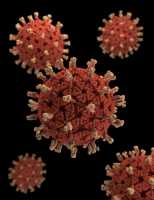Author Interviews, OBGYNE, Science / 05.12.2018
Kicking in Womb Helps Babies Develop Sense of Their Own Body
MedicalResearch.com Interview with:
 Kimberley Whitehead
Neuroscience, Physiology & Pharmacology
University College London
MedicalResearch.com: What is the background for this study?
Response: Fetuses move a lot! Very similar movement patterns are seen in both pre-term and full-term newborn infants, but their function is unclear. In animals such as rats, spontaneous movement and consequent feedback from the environment during the early developmental period trigger specific patterns of electrical activity in the brain that are necessary for proper brain mapping.
(more…)
Kimberley Whitehead
Neuroscience, Physiology & Pharmacology
University College London
MedicalResearch.com: What is the background for this study?
Response: Fetuses move a lot! Very similar movement patterns are seen in both pre-term and full-term newborn infants, but their function is unclear. In animals such as rats, spontaneous movement and consequent feedback from the environment during the early developmental period trigger specific patterns of electrical activity in the brain that are necessary for proper brain mapping.
(more…)
 Kimberley Whitehead
Neuroscience, Physiology & Pharmacology
University College London
MedicalResearch.com: What is the background for this study?
Response: Fetuses move a lot! Very similar movement patterns are seen in both pre-term and full-term newborn infants, but their function is unclear. In animals such as rats, spontaneous movement and consequent feedback from the environment during the early developmental period trigger specific patterns of electrical activity in the brain that are necessary for proper brain mapping.
(more…)
Kimberley Whitehead
Neuroscience, Physiology & Pharmacology
University College London
MedicalResearch.com: What is the background for this study?
Response: Fetuses move a lot! Very similar movement patterns are seen in both pre-term and full-term newborn infants, but their function is unclear. In animals such as rats, spontaneous movement and consequent feedback from the environment during the early developmental period trigger specific patterns of electrical activity in the brain that are necessary for proper brain mapping.
(more…)


























